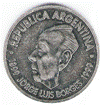Modern Languages and Literatures, Department of

Spanish Language and Literature Papers
Document Type
Article
Date of this Version
2019
Citation
Published in Art from Trauma: Genocide and Healing Beyond Rwanda, ed. Rangira Béa Gallimore & Gerise Herndon. University of Nebraska Press, Lincoln, 2019.
Abstract
One morning on a spring day not unlike the one during which I write these lines, Dr. Marie Chantal Kalisa came into my office and gifted me with a word. It wasn't a strange occurrence, this. As office neighbors, friends, and fellow members of the order of the culturally dislocated, we were engaging in just an ordinary part of our ongoing conversation on language, memory, cultural (non)transmission, and the many intimate losses and transformations that come as a by-product of geographic displacement. A lovely word it was, its Kirundi vowels bright, shiny, sweet to my ears. A tiny jewel wrapped in tissue paper and carried across oceans and years. She told me (reader: mistrust my paraphrasing mind), that it meant "I have traveled far, I have far to go," and then she told me that she liked it and that it would be the title of one of the stories that she would write one day. One dayacademic- speak loosely translatable as "when the research is done, the articles are published, and the committee work completed." One day. And because I could not form a mental picture of my newly acquired gem, Chantal wrote it for me on a piece of paper that I kept in a book for a couple of years until I gave it back it to her on some solemn occasion, now almost forgotten. Today, hard as I try, I cannot remember enough of that word to reconstruct it. It is only until very recently that I have stopped trying to guess enough of its structure or its sound to ask a speaker of Kirundi to bring it back to me-having made peace, perhaps, with the somewhat esoteric proposition that I was meant to lose it.


Comments
Copyright © 2019 Board of Regents of the University of Nebraska.